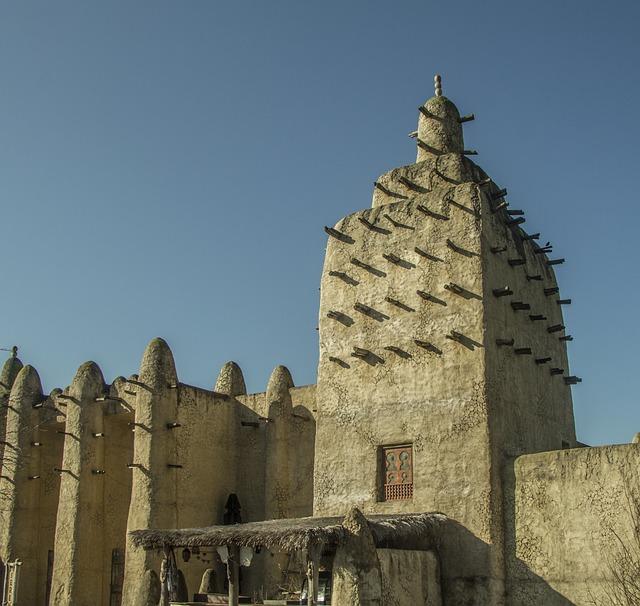In a notable move aimed at enhancing economic progress and governance in Mali, the Malian government, in collaboration with the African Development Bank (AfDB), has launched a joint Country Portfolio Performance Review (CPPR).This initiative is designed to assess and optimize the impact of ongoing projects funded by the AfDB in the country, ensuring that resources are effectively allocated to meet the pressing needs of the Malian populace. With the backdrop of ongoing challenges in the Sahel region, including security concerns and socio-economic instability, this review seeks to strengthen partnerships, improve project implementation efficiency, and ultimately contribute to enduring growth and resilience in Mali. As both entities come together to address these critical issues, the CPPR represents a proactive step towards fostering inclusive development and achieving long-term development goals.
Mali’s New Collaborative Initiative with African Development Bank
Mali’s government, in partnership with the African Development Bank (AfDB), has embarked on an ambitious endeavor aimed at enhancing the effectiveness and efficiency of development projects within the country. This collaborative initiative will involve a thorough review of current project portfolios, ensuring alignment with national economic goals and responding to pressing socio-economic challenges. By systematically assessing existing efforts, both parties intend to identify bottlenecks, streamline processes, and bolster project outcomes.
Key components of this initiative include:
- stakeholder Engagement: Inclusive dialogues will be held with local communities, project beneficiaries, and other stakeholders to gather vital insights.
- Capacity Building: Training programs aimed at strengthening local institutions and human resource capabilities will be implemented.
- Monitoring and Evaluation: Enhanced frameworks for tracking project progress and measuring impact will be developed to ensure accountability.
| Project Focus | Expected Outcomes |
|---|---|
| Agriculture Development | Increase in food security and farmer incomes |
| Infrastructure Improvement | Enhanced access to markets and services |
| Healthcare Access | Improvement in community health indicators |
Analyzing Key Objectives of the country Portfolio Performance Review
The Country portfolio Performance Review (CPPR) serves as a vital mechanism for assessing the effectiveness and impact of development projects facilitated by the African Development Bank (AfDB) in Mali. It aims to align national priorities with investment strategies while fostering openness and accountability. The review will focus on several key objectives to optimize project delivery and outcomes,notably:
- Enhancing project sustainability: Evaluating existing projects to ensure they meet long-term community needs.
- Identifying capacity gaps: Analyzing the strengths and weaknesses within governmental structures to enhance implementation.
- Strengthening stakeholder engagement: Involving local communities and beneficiaries in the decision-making process to increase ownership.
- Promoting data-driven policy making: Utilizing thorough data analysis to inform strategic decisions and allocate resources effectively.
Furthermore, the CPPR aims to establish a framework for continuous monitoring and evaluation, bridging the gap between planning and execution. By embracing a collaborative approach, the initiative intends to enhance the synergy between the Mali government and the AfDB, leading to more effective resource allocation. The anticipated outcomes of the review are reflected in the following table:
| Objective | Expected Outcome |
|---|---|
| Project Sustainability | Long-term benefits for communities |
| Capacity Gap Identification | Strengthened implementation capabilities |
| Stakeholder Engagement | Increased community ownership |
| Data-Driven Policymaking | improved resource allocation |
Evaluating the Current Impact of Development Projects in Mali
The recent collaboration between the Malian government and the African Development Bank marks a significant step toward assessing the effectiveness of development initiatives within the country. This joint effort focuses on evaluating past and ongoing projects through a structured review process aimed at identifying strengths and weaknesses in project implementation. By leveraging data-driven insights, stakeholders can better understand the outcomes of these projects, reflecting thier contributions to Mali’s social and economic growth. Key areas of evaluation include:
- Infrastructure Development: Assessing the impact on transportation and utility access.
- Health and Education: Measuring improvements in service delivery and access to resources.
- Economic Opportunities: Evaluating job creation and support for small businesses.
This comprehensive review aims to enhance transparency and accountability in project execution,engendering trust among local communities and international partners. Furthermore,it seeks to provide actionable recommendations that will guide future investments and policy decisions,ensuring they align with the actual needs of the population. To illustrate the current state of development projects in Mali,the following table outlines the key initiatives evaluated,their objectives,and status:
| Project Name | Objective | Status |
|---|---|---|
| Road Rehabilitation Project | improve transportation infrastructure | Ongoing |
| Health Clinics Initiative | Enhance healthcare access | Completed |
| Renewable Energy Expansion | Promote sustainable energy sources | In Planning |
Identifying Challenges and Opportunities in Mali’s Development landscape
The recent collaboration between the Malian government and the African Development Bank marks a significant step in addressing the multifaceted challenges that hinder the country’s growth. Key issues plaguing mali’s development include:
- Insecurity and political Instability: Ongoing conflicts in the northern regions disrupt economic activities and displace communities.
- Weak Infrastructure: Limited access to essential services, including transportation, energy, and water, hampers productivity.
- Climate Vulnerability: Extreme weather events affect agricultural output,threatening food security.
- Education and Health Disparities: Insufficient investments in human capital create barriers to sustainable development.
Tho, amidst these challenges lie numerous opportunities for change. The country Portfolio Performance Review aims to capitalize on various strengths, such as:
- Rich Natural Resources: Mali possesses significant mineral wealth, especially in gold and agriculture, wich can boost its economy.
- Youthful Population: Harnessing the potential of a large, young workforce could drive innovation and growth.
- Regional Integration: Enhancing trade relations with neighboring countries presents pathways for economic cooperation.
- Increased International Funding: The commitment of development agencies can support key infrastructures and social programs.
| Challenge | Prospect |
|---|---|
| Insecurity | Investment in peacebuilding and governance initiatives |
| Poor Infrastructure | Public-private partnerships in infrastructure development |
| Climate Change Impact | Adoption of sustainable agricultural practices |
| Low Education Levels | focus on vocational training and skills development |
Recommendations for Strengthening governance and Project Implementation
To enhance governance and ensure effective project implementation in Mali, a structured approach focusing on accountability and stakeholder engagement is essential. Establishing transparent communication channels between the government, local communities, and project stakeholders will foster trust and alignment on project goals. Additionally, boosting capacity-building initiatives for local authorities and project implementers can considerably improve the management and execution of development projects. Regular training workshops and technical support should be prioritized to equip these groups with the necessary tools and knowledge.
Moreover, integrating robust monitoring and evaluation frameworks will allow for real-time feedback and adjustments to project strategies as needed. Implementing technology-driven solutions such as digital dashboards can facilitate improved tracking of project milestones and expenditures. It is also crucial to encourage public participation in the decision-making process, ensuring that local perspectives and needs are considered. This participatory approach not only enhances project relevance but also empowers communities, ultimately leading to more sustainable outcomes.
Future Prospects for Economic Growth and Sustainable Development in Mali
Mali stands at a pivotal juncture,where the convergence of various developmental initiatives could catalyze profound change. The recent collaboration between the Malian government and the African Development Bank marks a strategic effort to enhance the efficacy of investments aimed at bolstering economic recovery and promoting sustainable development. This initiative prioritizes critical sectors such as agriculture, energy, and education, which are essential for fostering inclusive growth.Key areas of focus include:
- Strengthening agricultural productivity through innovative practices and technologies.
- Expanding access to renewable energy, which is crucial for driving industrial growth.
- Enhancing educational outcomes to empower the workforce of tomorrow.
The outcomes from this partnership aim to not only improve living standards but also to build resilience against socio-economic challenges. In this context, the implementation of a tailored monitoring framework is vital to track progress and ensure accountability. A preliminary assessment highlights several promising indicators of potential growth:
| Indicator | Current Status | Target by 2025 |
|---|---|---|
| Agricultural production growth (%) | 3.5 | 5.0 |
| Access to electricity (%) | 45 | 80 |
| Literacy rate (%) | 33 | 60 |
Investing in these areas not only addresses immediate economic needs but also contributes to long-term sustainable practices that can drive Mali toward a more resilient future. By leveraging partnerships and strategic investments, Mali has the potential to be a model for other nations aiming for sustainable economic transformation.
Key Takeaways
the joint Country Portfolio Performance Review launched by the Malian government and the African Development Bank marks a significant step forward in enhancing the effectiveness of development initiatives within the country. By systematically evaluating ongoing projects and aligning them with national priorities, this collaboration aims to ensure that resources are utilized efficiently to foster sustainable growth and address the pressing challenges faced by Mali. As both entities work together to refine strategies and bolster developmental outcomes, the insights gained from this review will be crucial in paving the way for a more resilient economy and improved living standards for all Malians. Moving forward, stakeholder engagement and transparency will be vital as they strive to translate findings into actionable progress, reinforcing the commitment to shared development goals across the nation.

